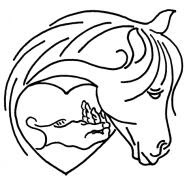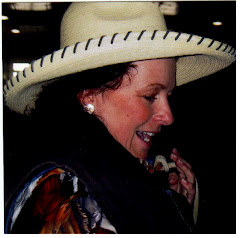Question: I am shopping for a new horse. One of the horses I am considering seems to be quite high headed. Is this something I should be concerned about, or can I fix it after I buy the horse?
Answer:
If being high headed is an occasional thing as a result of the horses trying to look at something far off in the distance or being afraid of something new then that would be a natural reaction, which I wouldn’t be too concerned about. However, if the horse is carrying his head high most of the time while being ridden no matter what the circumstance or who is riding him, then I would be somewhat concerned. Of course, all problems are solvable with all horses if you have enough savvy and time. It just depends on how good your feel is, how well you can read the horse, and how much time you are willing to spend with the horse to cure the problem. The more engrained the problem is the more skill you will need and the longer it will take to fix it because it has become a habit for the horse.
High headedness is just evidence of something else being out of whack. Usually if you remove the cause of the evidence the problem will solve itself. A horse who is high headed is thinking about evasion. He is seeking to relieve some kind of pressure. The first thing I would do is investigate the mechanical side of the problem. Is there any pressure causing physical discomfort for the horse? If I can eliminate mechanical problems then I need to look at the mental and emotional aspect. Is the horse being force or intimidated into performance without understanding which has caused the horse to brace in his body, especially his head and neck? Does the handler or rider have poor feel and timing causing confusion, fear, or resentment?
When looking for physical discomfort I would recommend starting with having a vet check his teeth. Does he have wolf teeth or a broken tooth which would give the horse reason to avoid a bit? Second check saddle fit. An ill-fitting saddle can cause a horse to lift his head and neck up to try to relieve pressure. Third have a vet or good farrier check his soundness. Old injuries or long term discomfort will cause the horse to adjust the way he carries himself in order to ease some pain in another area of his body.
Fourth, video and watch objectively your riding skill. A person can inadvertently cause physical discomfort to the horse with poor riding. If you watch the smaller things that indicate what is bothering the horse right before he throws his head up in the air you may be surprised that you are causing the problem. The horse may be trying to get away from your poor hands, bouncing seat, or legs which are squeezing while at the same time pulling back on the reins. When a rider’s body is more in tune with the horse’s body the horse will relax and lower his head. Learning about the timing and placement of the horse’s feet is a must when working to help a high headed horse quit this habit. Teaching the horse to give his head and neck in soft supple lateral flexion will go a long way in helping this horse quit bracing which results in a raised head.
If relieving any known physical discomfort doesn’t fix the problem then we have to look at the mental and emotional reasons the horse has developed this undesirable habit. A high head horse may have been starred at in the eye, dealt with too firmly, at too close of distance, too often which has caused his defensive behavior. Quick hands, loud voices, lots of motion right in front of the horse where he has no space for himself so he can lower his head in his own world can put too much mental pressure on the horse. When this happens the horse doesn’t feel secure enough to lower his head and be himself in your presence.
A horse that has been punished in the face will create high headedness on the ground and it can transfer to riding. This will take the horse some time to get over. If a horse has this kind of history I would recommend less touching on his face for quite a while. Wait until he presents his head to you. When he is ready he’ll look to you for affection or support at the place where he has been traumatized.
Unless a high headed horse’s spirits been broken he still has a tremendous amount of instinct that will work in your favor which you can use to help him break this defensive behavior. Use his natural curiosity about what is going on around him, and his inborn willingness to get along and be of service to your advantage. Slow down and give him a chance to get his confidence back.
Here are a few more ideas which might help you succeed faster with a confirmed high headed horse where you have eliminated physical discomfort as being the main problem and have determined the main issue is mental or emotional. When you bring this horse home the best thing to do may be to leave him alone for a while. Let him be with other horses, and get adjusted to a new environment in his own way and in his own time. When you approach him the first few times, don’t put a hand on him any closer than the shoulder. You might even go to the hip first brush his tail then walk away.
Next I would suggest a few sessions of bucket sitting with him. Let the first move be his toward you. Set it up so he has to reach down and toward you. Whatever you do DON’T reach up to him, remember let him come down toward you then you can touch him. This will be the start of him feeling comfortable with his head down around you, until it becomes the new habit. When you halter him make sure you don’t follow his head up, wait for him to come down to you. Try to position him so you set up his shoulders and hips where it causes him to want to reach down.
The habit of being high headed is usually a product of handling which doesn’t encourage the opposite, or is a result of something being out of whack. So if you think you can determine what is out of whack and encourage a more desirable habit then I would say you could fix this problem given enough savvy and time.
If you have other questions for Sherry you can e-mail her at sherry@heartinyourhand.com , attend one of her horsemanship clinics, camps or lessons, visit her website at www.heartinyourhand.com, or read her newly released book “Win Your Horse’s Heart (Be a Better Horseman)
Monday, January 26, 2009
Subscribe to:
Post Comments (Atom)













No comments:
Post a Comment